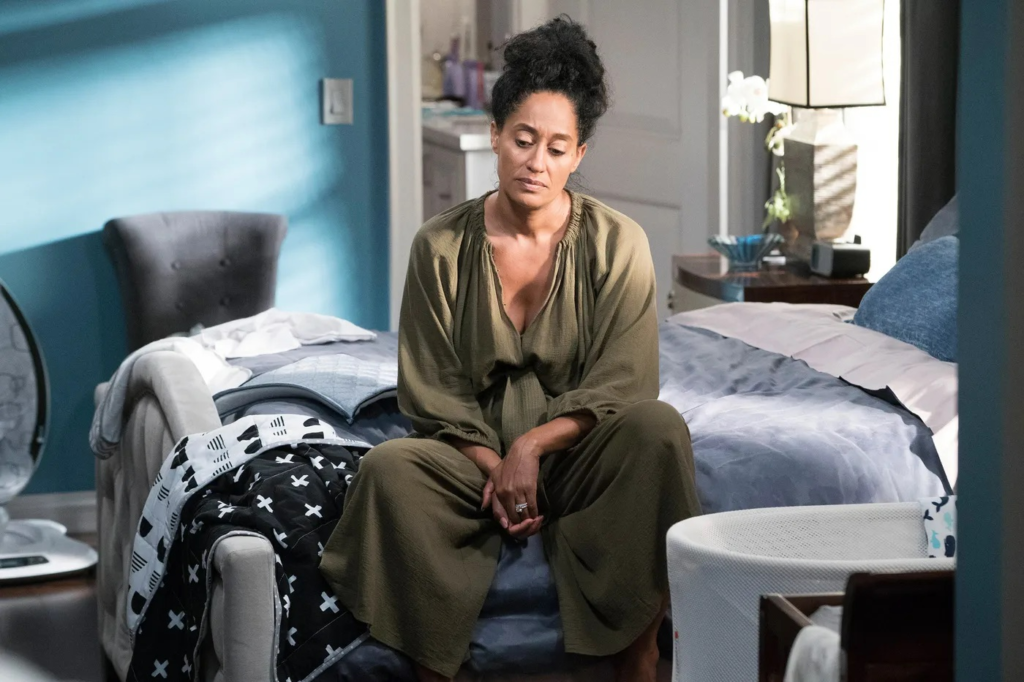Mental health is a thing that entertainment media pushes more and more in our entertainment for its importance in our everyday life. How mental illness is portrayed in our media is a big deal and very important because we are almost being given a lesson or a look into what it really is. There are some good examples of how it is portrayed in our media, like Netflix’s BoJack Horseman and movies like Girl, Interrupted. One that stuck out to me was ABC’s show Black-ish.
In Black-ish season four, episode two, one of the main characters, Rainbow struggles with postpartum depression after giving birth to the newest addition of her and Andre’s (the father) family. Postpartum depression, also known as the “baby blues,” is when the mother goes through a depression after childbirth followed by fatigue, physiological adjustment, and more. Postpartum depression is not spoken about often, and it feels like we are just hitting the surface level of what it really means and entails for a lot of new or experienced mothers. The show Black-ish portrays it well by including the confusion of Rainbow and Andre, as well as the kids and grandparents. Although it may be confusing, the show exemplifies that some understanding and help can go a long way. While doing that, it also shows what not to do, as the episode takes a turn when Andre’s mother gives the baby something to help him sleep since Rainbow isn’t producing enough milk. With no understanding from the grandmother for Rainbow’s feelings, it sends Rainbow into a breakdown.
Black-ish is a family sitcom with a target audience of a range of people. Discussing a mental health topic such as this one was a big deal for the sitcom that followed a lot of discussion on podcasts and magazines, such as Variety calling it a “Powerful Episode.” I, among others, agree with this because it was not only a big deal for the show but also mothers across the world. When researching postpartum depression, I discovered a common theme with new and experienced mothers saying that it made them feel seen. Although a lot of women like myself do not have kids, it is very comforting to hear that.
There are so many factors and layers to mental health conditions and their awareness. That is why when we choose to have mental health in the media, it is important that it is portrayed right, whether it be television shows, movies, or books. We need to get away from the stigma that mental health has around it and portray its reality a lot better. As our society touches more on mental health, it is very crucial that we make efforts to be understanding, listen, and let others know they are not alone.
If you or anyone you know is struggling with mental health, there are some resources down below. Please remember you are not alone.
Suicide and Crisis Lifeline: (call or text) 988

